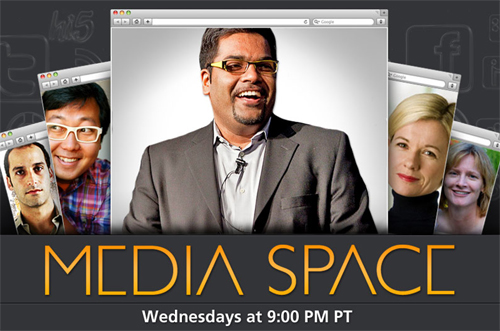Is the web making us stupid?

The University of Washington launched a new TV show, Mediaspace, and the producers asked me to do a 2 minute commentary for each episode. This is from episode 1, where they interviewed Ben Huh, founder of I can has Cheezburger. The show is broadcast live, with realtime twitter conversation, and rebroadcast on UWTV.
The idea was to have an Andy Rooney type closing segment to finish each episode.
Monologue on the web making us stupid:
One of the silliest notions we have about media and change is that each new thing is either wonderfully good or horribly bad. The web itself, in the opinions of pundits, will either radically improve the world (Clay Shirky), or destroy our minds (Nicholas Carr). If you pay attention long enough, you see everything gets cast into these polarized, and while entertaining, mostly useless frameworks. They’re fun, they spur debate, but rarely do they progress the conversation.
The truth is, all things have some good and some bad and them, and that goodness and badness varies depending on who you are. It’s common sense to take this view, but since it’s a not fun view, it’s a way of thinking we often ignore. This way of thinking requires patience to sort out who is helped by something new, and in what situations. I can has Cheezburger might be silly, and you might not find it funny (I don’t), but why is the fact that millions of people find something funny, that I don’t, a problem? I’d rather they find something funny and laugh a little more, than find things that enrage them, and make them hate a little more.
Lowbrow humor has always had a place in high-brow culture, and to assume some people who like lol-cats can’t also like Monty Python or Tchaikovsky reflects a limited imagination of the wide range of tastes most people have. The notions of a guilty pleasure reflects our puritan roots more than the nature of the pleasures themselves.
Most important of all perhaps is the recognition that what’s most popular is rarely the best. This has always been true from books, to newspapers, to radio, tv, and the web– there is a lowest common denominator required for mass popularity and once you recognize the difference between the popular and the good, the existence of amazingly popular blogs about silly things seems fairly ordinary in the history of American media.
A better question perhaps is how can we use the lol-cats and the chat-roulettes of the world, these super easy forms of content creation, as a cultural Trojan horse of sorts. Showing the young they can be makers, but not just of the trivial. Once you learn to make something, anything, the possibility exists the next thing you make will have more meaning than the last. And that’s what I’m hoping our technologies do for us: help us to create meaning. But where are the tools for making real works of art, or expressing thoughts and ideas with deeper and longer effects than just a few moments of laughter? That’s what I’m still looking for. If you’re looking too, let me know.
You can watch the entire first show here. Or just my segment, below:

When I was in elementary school, during network TV, I often heard that TV was aimed at the level of an eight year old, while newspapers were written for a twelve year old level. The issue is not the average consumer of each medium, but the lowest common denominator.
Other examples of differing audiences would be blue and white collar, written sf and Hollywood sci-fi. (Isaac Asimov called it eye-fi)
While People magazine can show from the cover that it is not as demanding as The Economist there as yet no easy indicators for the web. It’s as if two audiences are sharing the same medium… leading to expectations that the web will be for TV types. Hence even computer industry people may complain when a programmer (Stevey) writes long (by their expectations) essays.
It’s too bad, because I would hate to see essays fail to flourish in this brave new medium. Perhaps we need to develop indicators to manage expectations.